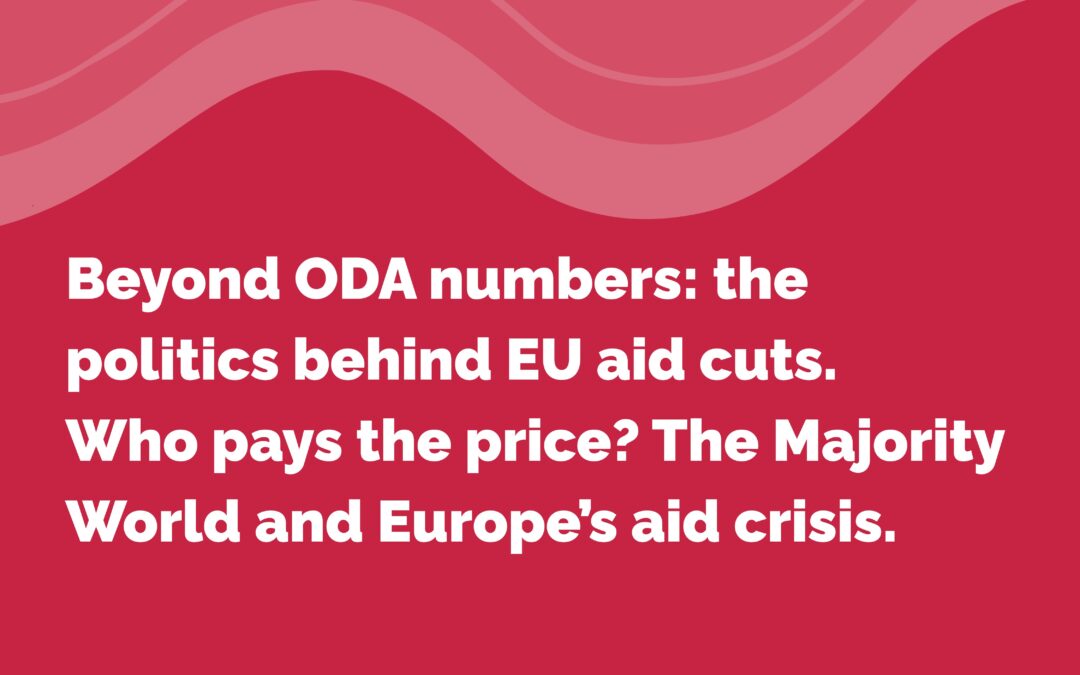Tanya CoxDirector of CONCORDLooking Back… As we all know, the EU’s aid commitments are not just fragile, they are also conditional and political. For years, most EU Member States...


Tanya CoxDirector of CONCORDLooking Back… As we all know, the EU’s aid commitments are not just fragile, they are also conditional and political. For years, most EU Member States...

On Tuesday 22 October, CONCORD launched the 2024 edition of its AidWatch report. This year, the report posed the question, ‘Whose interests does ODA truly serve?’ and found that a significant portion of European ODA provision is being shaped by self-interests instead of the wellbeing of partner countries.

CONCORD’s 2024 AidWatch report reveals that Official Development Assistance (ODA) from EU Member States increasingly serves national self-interest, falling short in both quantity and quality.

2021 should have been the year to double down on ODA to counter compounding global challenges. Instead, 1 euro in every 6 from EU and Member States’ ODA budgets did not even go towards those left furthest behind.

On Wednesday 18th October, CONCORD launched its 2023 AidWatch report, ‘Bursting the ODA inflation bubble.’ The report analyses both the quantity and the quality of EU ODA, finding that although reported figures are at a record high, 22% of reported ODA did not meet the most basic criteria to qualify as such.

While Official Development Aid (ODA) figures are reportedly at record highs, the AidWatch 2023 report shows how the EU and its Member States have managed once again to claim billions as aid that did not meet the most basic criteria to qualify as ODA.

2021 should have been the year to double down on ODA to counter compounding global challenges. Instead, 1 euro in every 6 from EU and Member States’ ODA budgets did not even go towards those left furthest behind.

After a surprise move by the Chair of the Development Committee, Tomas Tobé, the European Parliament voted in favour of making EU aid to developing countries conditional on their compliance with EU migration control objectives.

CONCORD took an active part in the AidEx conference in Brussels, that gathered more than 2.000 people from the aid and development. Here are the main takeaways from the debates, stands and discussions.

Ahead of the DAC high-level meeting, CONCORD encourages the OECD to ensure aid maintains a laser focus on eradicating poverty and sustainable development for all. The outcomes of the meeting could reinforce current worrying trends for EU aid: decrease of aid to least developed countries, increase of conditionality and securitisation of aid as well as an increase of in-donor country costs reported.